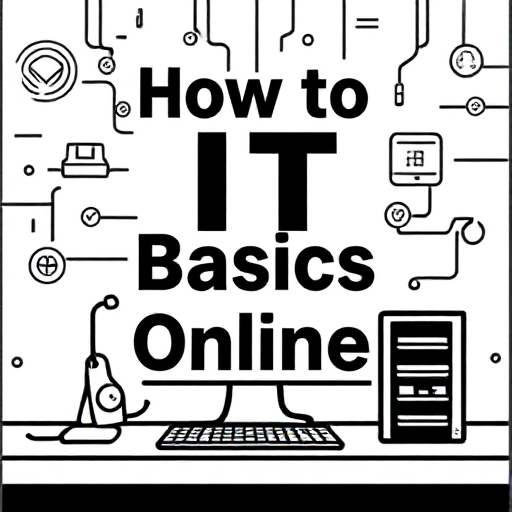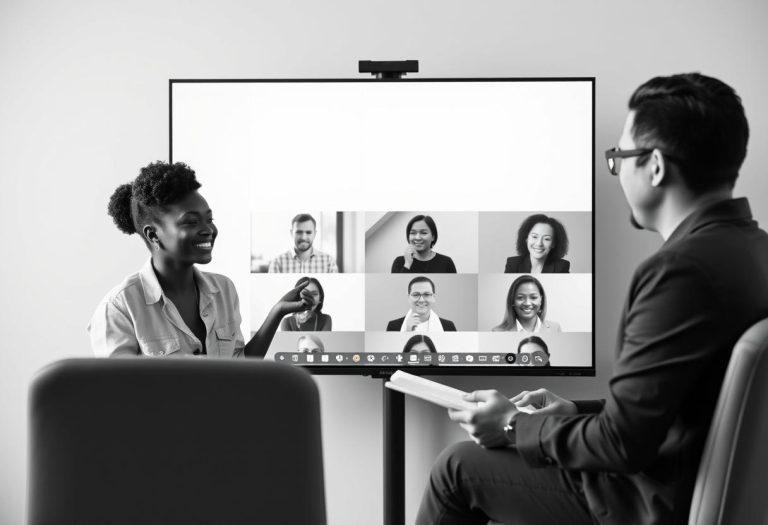
Learning programming can feel daunting at first, but with the right approach, anyone can become proficient. Whether you want to build websites, develop apps, or dive into the world of artificial intelligence, the foundations of programming are accessible to all. Here’s a comprehensive guide on how to learn programming as a beginner.
1. Understand Why You Want to Learn Programming
Before you begin your journey, it’s important to define why you want to learn programming. Whether it’s to get a job in tech, automate tasks, build projects, or simply understand how the digital world works, your motivation will keep you focused.
2. Choose the Right Programming Language
As a beginner, choosing a language that matches your goals is essential. While there are numerous languages, here are a few popular ones for beginners:
- Python: Great for general-purpose programming and used in web development, data science, AI, and automation. Python is beginner-friendly due to its simple syntax.
- JavaScript: If you’re interested in web development, JavaScript is essential. It allows you to create interactive websites and is widely used in both front-end and back-end development.
- Ruby: Known for its simplicity and ease of learning. It’s commonly used for web development with the Ruby on Rails framework.
- Java: A solid choice for those interested in Android development or working in large systems. Java’s syntax is more complex than Python’s but remains an excellent language for beginners to learn fundamental concepts.
Start with one language, and once you become comfortable with programming fundamentals, you can explore others.
3. Learn the Basics of Programming
Before diving into advanced concepts, you need to grasp the basic programming concepts that apply to almost every language. These include:
- Variables: These store values like numbers, text, or more complex data.
- Data Types: Common types include integers, strings, and booleans (true/false).
- Operators: Mathematical or logical symbols used to manipulate values (e.g., +, -, *, /, ==).
- Control Flow: If/else statements and loops (for, while) control the flow of the program.
- Functions: Reusable blocks of code that perform a specific task.
- Arrays/Lists: Collections of data that can be accessed using an index.
- Objects: Structures that allow you to group related data and functions together (important for object-oriented programming).
4. Choose Learning Resources
The next step is to find suitable resources for learning. There are various methods for acquiring programming knowledge, and it’s a good idea to mix and match depending on your learning style:
- Online Courses: Websites like Coursera, Udemy, edX, and Khan Academy offer beginner-friendly courses, often taught by industry professionals. Some are free, and others are paid but can provide structured learning paths.
- Books: Classic programming books like “Python Crash Course” by Eric Matthes or “Eloquent JavaScript” by Marijn Haverbeke are great for beginners.
- Interactive Platforms: Websites such as Codecademy, freeCodeCamp, and LeetCode offer interactive lessons where you write code directly in your browser and receive instant feedback.
- YouTube Channels: Many YouTube channels provide tutorials for beginners. Channels like “Programming with Mosh” or “The Net Ninja” offer high-quality, easy-to-follow lessons.
- Documentation: As you progress, reading official documentation for the language you are learning is crucial. It will help you understand how to use built-in functions and libraries.
5. Practice, Practice, Practice
The key to becoming proficient in programming is constant practice. Start by writing simple programs and gradually move to more complex projects. Here are some ways to practice effectively:
- Code Daily: Dedicate time each day to writing code. Even an hour can make a significant difference over time.
- Work on Projects: Start small with projects like building a calculator, to-do list, or simple website. These hands-on experiences will solidify what you’ve learned and teach you new concepts along the way.
- Contribute to Open Source: As you gain confidence, contributing to open-source projects can be a great way to learn from others, gain real-world experience, and help the community.
- Coding Challenges: Participate in coding challenges on platforms like HackerRank, CodeWars, or Project Euler to sharpen your problem-solving skills.
6. Understand Algorithms and Data Structures
Once you’re comfortable with basic programming, it’s time to learn about algorithms and data structures. These are the building blocks of efficient code and problem-solving. Some key topics include:
- Sorting algorithms: Bubble sort, quicksort, and merge sort.
- Searching algorithms: Linear search, binary search.
- Data Structures: Arrays, linked lists, stacks, queues, trees, and hash tables.
- Big O Notation: A way to express the efficiency of algorithms in terms of time and space complexity.
Understanding these concepts will help you write more efficient code and solve problems in optimized ways.
7. Debugging and Problem Solving
Learning to debug code is an essential skill in programming. Often, you will run into issues where your program doesn’t work as expected. Here are some tips:
- Read Error Messages Carefully: Error messages often contain hints that can help you pinpoint where the issue lies.
- Use Print Statements: Inserting print statements in your code can help you understand what’s happening at each step.
- Debugging Tools: Most programming environments have built-in debuggers that allow you to step through your code and inspect variables.
- Ask for Help: Don’t be afraid to ask for help when you’re stuck. Communities like Stack Overflow, Reddit, or Discord programming servers are great places to ask questions.
8. Stay Consistent and Be Patient
Learning programming takes time and effort. It’s normal to feel overwhelmed at times, but don’t give up. The key is consistency. Make small, steady progress every day and don’t rush the process. Celebrate small wins and milestones along the way to stay motivated.
9. Join a Community
Being part of a programming community can help you stay motivated and learn faster. Consider joining online communities, attending coding meetups, or participating in hackathons. You’ll meet people who can offer advice, share resources, and inspire you to keep learning.
10. Never Stop Learning
Programming is a field that is constantly evolving. New technologies, frameworks, and languages are introduced regularly. To stay relevant and continue growing, commit to lifelong learning:
- Follow blogs and podcasts in the programming community.
- Keep learning new languages and frameworks.
- Experiment with new technologies like machine learning, blockchain, or web development.
Learning programming as a beginner is a journey that requires dedication, practice, and patience. By choosing the right language, mastering fundamental concepts, practicing regularly, and staying motivated, you’ll be well on your way to becoming a skilled programmer. Remember, programming is about problem-solving, and every challenge you overcome is a step toward mastering this valuable skill.






